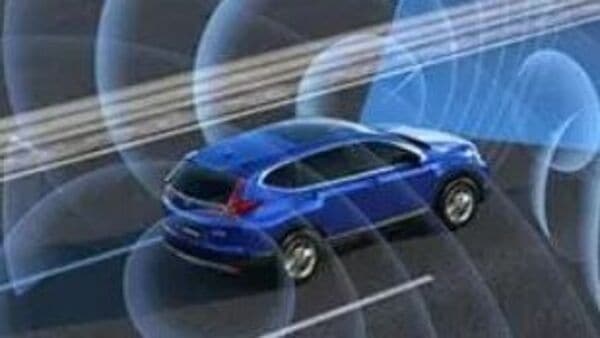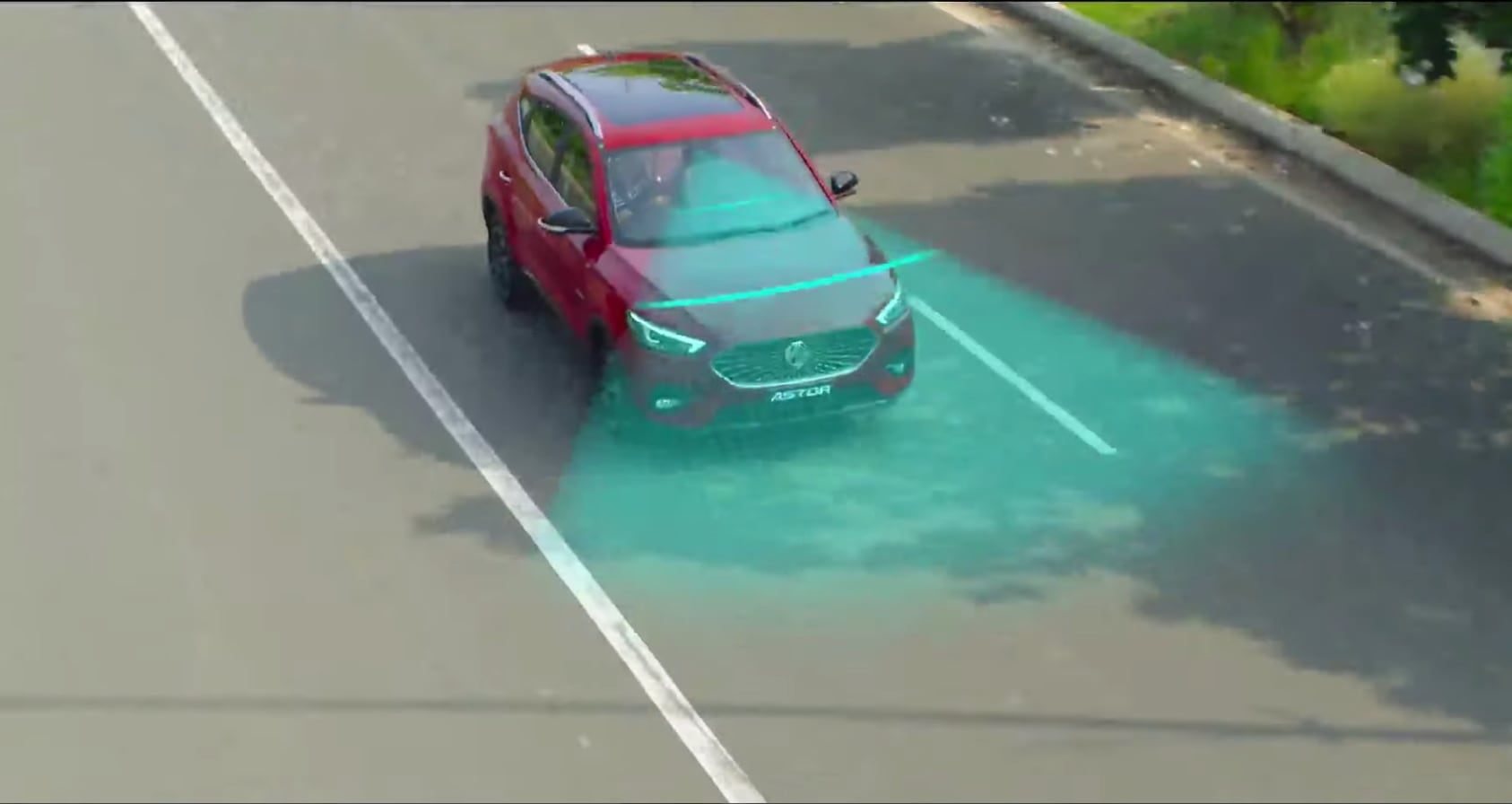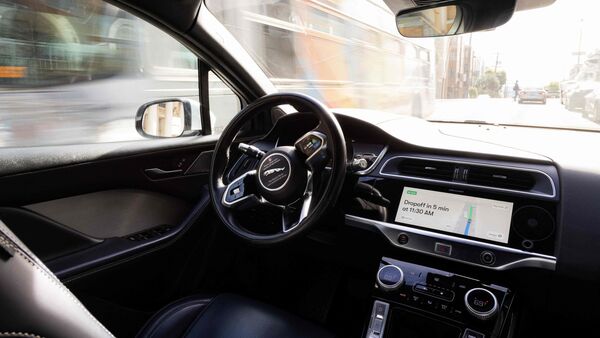
Mahindra Thar Roxx gets Level 2 ADAS. But what does it even mean?
8 months ago | 104 Views
Mahindra Thar Roxx has opened its innings in the Indian car market with a bang. The enormous interest in the Thar Roxx since its official launch on August 15 has been phenomenal. While booking figures have not yet been disclosed by the company, the Thar Roxx has become a hot topic of conversation within automotive circles and in the market. This is partly because of the fact that it is a Thar, an iconic name and brand, as well as due to all the updates it gets over the three-door version that was launched in 2021. Among the several new additions is the introduction of Level 2 ADAS or Advanced Driver Assistance System.
Now ADAS is not new for an SUV model in the Mahindra camp. And it is hardly new for a vehicle in India. But the Thar thus far has not had it despite the likes of XUV700 and Scorpio-N boasting about it. Of course, the three-door Thar was launched before both XUV700 and Scorpio-N but a few may argue that an off-road beast may not actually need ADAS at all.
But Thar Roxx is attempting to not just underline its 4x4 credentials but aiming to strike a chord with buyers looking for a mid-size SUV for daily urban commutes. In that sense, ADAS could be a vital addition to the resume.
But just wait for a second. What is ADAS in the first place? And what is Level 2 ADAS? And does India even need a driver assistance system in a car? We break down the jargon below.
What is ADAS?

Modern drivers need modern technologies. Driving a car is not just about turning on the ignition, pressing the throttle and getting a move on. And while purists may argue that this is exactly what driving should still be, more and more people are expecting more and more from their vehicles.
ADAS then has become a significant part of the feature list in not just luxury vehicles but models sold in the mass market as well. What the system overall seeks to do is help a driver operate the vehicle in motion better and in a potentially safer manner.
How does ADAS work?

Now we can go on and on about how ADAS depends on a host of chips, also called systems on a chip (SoCs) which connect sensors to actuators via electronic controller units (ECUs) to offer driving assistance functionalities. Too technical?
So how ADAS essentially works is through a combination of software and hardware units on a vehicle. Depending on how advanced an ADAS is on a particular model, it may make use of a set of cameras or radars or both to offer a continuous 360-degree monitoring solution. This is active when a vehicle is on the move but may also be operational when the car is stationary. The feed from the cams, radars or cam-radar combine is continuously assessed to help the vehicle move with varying degrees of input requirement from the person behind the wheel. Whether the said car can drive itself entirely on its own or partially or only issue visual and audio warnings will depend on the ADAS level.
What are ADAS levels?
This is perhaps the most crucial part of this entire explanation. ADAS on any vehicle anywhere in the world is categorised into five levels - ADAS Level 1, ADAS Level 2, ADAS Level 3, ADAS Level 4 and ADAS Level 5.
ADAS Level 1:
ADAS Level 1 refers to a basic driver assistance system wherein he or she is still entirely in command and responsible for the vehicle, on the move or otherwise. The system, however, scans the road ahead and assesses the distance to offer functions such as Adaptive Cruise Control (ACC). It is important to note here that ADAS Level 1 may offer several functions but only one of these functions is active at one point in time.
ADAS Level 2:
ADAS Level 2 is a big step up and allows for partial automation of driving. Level 2 ADAS allows a vehicle to operate the steering, accelerate or brake as per the road/surrounding assessment from the system. This is fast becoming very common on cars in India with the Thar Roxx itself getting a set of 10 Level 2 ADAS functions that include Lane-Keep Assist (LKA), Forward Collission Warning, Auto Emergency Braking and High-Beam Assist. Level 2 ADAS is also more advanced that Level 1 ADAS because multiple functions can operate at the same time.
ADAS Level 3:
Level 3 ADAS is still the dominion of high-end vehicles. And this is largely due to the enormous technological inclusions. This allows for conditional automation of driving and is the stepping stone towards an entirely self-driving vehicle. This is also the first ADAS level where a driver need not be in command of the vehicle at all times, leaving it to operate entirely on its own. It is important to note here that in case of one function malfunctioning, the Level 3 technology allows for other functions to mitigate the risk and take precautionary action.
ADAS Level 4:
Now we are in some very serious sci-fi territory. Level 4 ADAS, unlike Level 3 ADAS, will not ask a driver to take control at any point and when activated will be the sole commander of the vehicle. In fact, depending on local laws, a driver can even take a nap when the vehicle is in motion with Level 4 ADAS active. Of course this is still not advisable anywhere in the world but the technology itself allows for it.
ADAS Level 5:

The future is almost here. Imagine driving a car without being behind the wheel. Or imagine a chauffeur-driven car without a chauffeur. Ladies and gentlemen, say hello to fully-automated driving systems. Now while there is raging debate across the world about if Level 5 ADAS-enabled cars are safe for the vehicle, its occupants, pedestrians and fellow motorists, the function itself is capable of operating itself entirely on its own without the need for any human to be anywhere in the cabin. Level 5 ADAS is still under development and in testing phase although certain sectional roads in global cities have allowed for real-world operation for prototype versions.
Is ADAS suitable for India?
Backers of ADAS argue that because India ranks the worst in list of countries with the highest number of accidents, ADAS can be a game changer. Depending on the level, ADAS can correct human errors and even take evasive measures. But critics of ADAS counter by saying that densely populated Indian roads - with a variety of changing obstacles - mean ADAS will be a hindrance rather than a boon. There have been several instances of ADAS-enabled vehicles being 'driven' by people while they are napping or playing cards or even eating. This is not only illegal but remains a very dangerous act, both for the vehicle and everyone around.
Read Also: Auto news recap, August 19: Citroen C3 price hike, TVS' global EV aspiration & more #




















